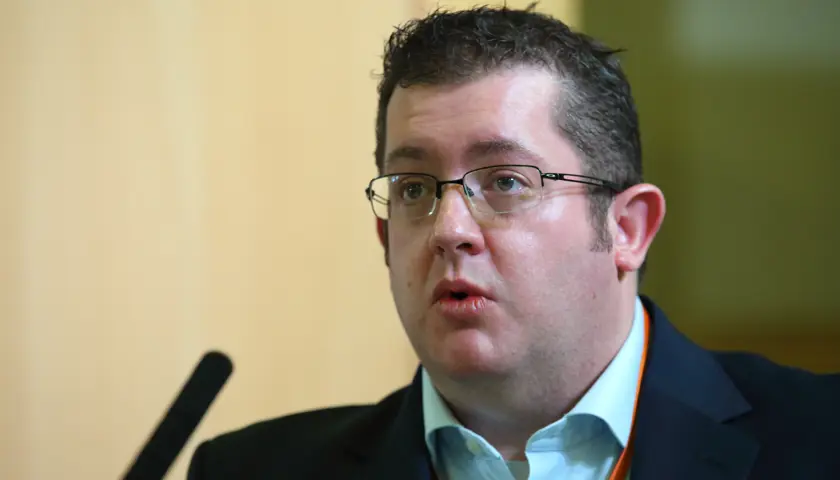
A race against time
The global rise in antimicrobial resistance is perhaps the greatest threat facing medicine. But while it may seem a losing battle, some doctors are finding cause for hope in better diagnostics and novel treatments. Tim Tonkin reports.
It is no understatement to say the discovery of penicillin has revolutionised healthcare since the 1940s and has helped to usher in a golden age of medical advances and boosted life expectancy.
From enabling the treatment of infectious diseases to drastically improving patient outcomes following surgery, antibiotics have helped to save countless lives throughout the world.
Yet almost 100 years since their discovery, the effectiveness of antibiotics, and the once unshakable cornerstone these treatments held within medicine, seems increasingly precarious.
While the number of new antibiotics being developed has slowed dramatically during the past 40 years, the number of bacterial strains resistant to existing drugs has risen.
This resistance, collectively known as AMR (antimicrobial resistance), has developed in large part because of overuse and misuse of antibiotics in areas such as agriculture, farming and healthcare, with poor stewardship of these drugs allowing bacteria to evolve resistance.
This is an arms race between us and bacteria, and it’s an arms race that we’re not going to win.
Dr Farren
The spectre of AMR has seen many warnings from the science and medical community that the world is sleepwalking towards a ‘post-antibiotic age’ in which infections will be harder and more costly to treat and medical procedures such as chemotherapy, childbirth and surgery riskier.
This frightening prospect saw the UK Government in 2019 launch a five-year strategy for tackling AMR which set out a range of measures aimed at curbing its effects through greatly reducing use of and unintentional exposure to antimicrobials in people and animals.
That same year, a study published in The Lancet found antibiotic-resistant bacterial infections had been directly responsible for more deaths globally in 2019 (1.2m) than either HIV/AIDS or malaria.
‘This is effectively an arms race between us and bacteria, and it’s an arms race that we’re not going to ultimately win,’ warns consultant microbiologist David Farren.
‘We just have to try and keep one step ahead, and that involves actually looking at different ways to prevent infection or to manage infection as we go forward.’
An infection control specialist, Dr Farren says that while AMR is often labelled as a future problem, the effects of resistant infections are already a reality today for many doctors and patients.
‘If someone comes into hospital having already had an infection with a bug that has resistance to one or more class of drugs that we use, they’re going to be staying longer in hospital, they’re going to require more intensive nursing care,’ says Dr Farren.
‘Most new treatments are not actually new antibiotics, but there are newer formulations or combinations of old drugs, ones that were previously avoided due to cost or side effects. Drugs like fosfomycin, which would have been very commonplace 50 years ago but then fell out of fashion, are now being trotted out [to combat AMR].’
Treatment costs
New treatments are indeed rare, although there are occasional developments which could herald a breakthrough in the fight against AMR.
Last month saw scientists announce a new class of antibiotics known as zosurabalpin, which has been shown to inhibit Acinetobacter baumannii bacterium, a pathogen that has proved highly resistant to multiple other treatments.
‘Zosurabalpin is indeed a very welcome development in tackling a challenging pathogen in a new manner, as there are few therapeutic options for carbapenem resistant Acinetobacter baumanii,’ says Dr Farren.
‘This is the only bacteria this drug will work against currently though, and while this means it is unlikely to generate any unwanted resistance in other medically significant bacteria, it puts the treatment somewhat into a niche.
‘It does, however, give hope that this novel approach might be used to help target bacteria such as E coli or Pseudomonas with new agents in the future.’
If we had better diagnostics then we could reduce antibiotic usage.
Dr Farren
As well as the clinical challenges posed by patients with resistant infections, the additional time and cost incurred by the NHS as a result of AMR are considerable.
Indeed, a health and social care committee report into AMR published in 2018 estimates that the annual cost to the NHS of treating drug-resistant infections came to £180m.
‘For most healthcare-associated infections, like an MRSA infection for example, we know that the cost of treating that patient is somewhere between three and four times more than an average patient. We know that their length of stay is probably two and a half times of the average person walking through the door, and the patient outcomes are less good,’ says Dr Farren.
‘They’re getting more intravenous antibiotics, using more consumables and having to be isolated in a side room or on contact precautions. There’s additional hand hygiene and personal protective equipment steps, potentially additional cleaning in and around the patient’s area. All of that contributes to an overall increased cost, increased length of stay.’
Dr Farren says tackling AMR requires a multi-stranded approach incorporating better infection control within healthcare settings, greater use of vaccination and more judicious use of antimicrobials through antibiotic stewardship but acknowledges that this can prove challenging.
For example, the lack of rapid and effective diagnostic tools able to determine whether a patient is suffering from a viral or bacterial illness leads to antibiotics being prescribed as a precaution.
‘The other big challenge is diagnostics, and this was highlighted during COVID,’ explains Dr Farren.
‘[During the pandemic] a lot of people who just had COVID were prescribed an antibiotic to cover a bacterial pneumonia as well, because the risks of missing a bacterial pneumonia were felt to be higher than the risks of not giving the drug.
‘If we had better diagnostics then we could reduce our antibiotic usage in those patients, and that’s particularly the case in primary care where access to rapid diagnostics is very limited.’
Oxford University professor of primary care Chris Butler says AMR has undoubtedly been driven at least in part by what he describes as ‘assumption-based medicine’.
As the head of Oxford’s infections and acute care research group, Prof Butler says, however, that there is cause to be quietly optimistic, with new antibiotic and antiviral medications emerging and, crucially, access to effective diagnostics in primary care becoming more readily available.
‘I think we are on the verge of a major paradigm shift, a transformative moment in healthcare delivery in primary care with the emergence of diagnostics that are rapid and comprehensive enough to give actionable information to guide treatment at the point of care,’ says Prof Butler.
‘We’ve already got feasible, rapid point-of-care diagnostics now that can tell you whether a patient has COVID, flu or RSV, so that in a short space of time you could get targeted antivirals, if the person is sick enough to warrant that, and rule out the need for antibiotics.
'The world is changing too for point-of-care diagnostics to guide care for some bacterial infections in primary care as well. I think we’re moving forward very fast now with point-of-care tests ... we’re soon going to see totally different approaches to antibiotic prescribing in urgent care centres in emergency rooms and general practices.’
Patient dialogue
Another crucial component to reducing AMR by promoting responsible use of antibiotics is communication and the approach to conversations between doctors and their patients, with Prof Butler arguing that many patients today are better informed about AMR and understanding the benefits and risks to taking antibiotics.
‘Most people don’t want to take antibiotics unless they really have to,’ he says.
‘We’ve done trials whereby we have trained GPs into communicating around antibiotics, and patient satisfaction is high, with those practices prescribing fewer antibiotics over a whole year subsequent to it.
‘I think with good explanations, with shared decision-making, sharing information, and with better trial evidence about who benefits and who doesn’t, the GP is in a much better position to say a person with your symptoms or with your comorbidities, antibiotics are unlikely to help you much.’
Improved diagnostics are not the only new weapon in the fight against AMR.
Virologist Josh Jones is one of a handful of people at the forefront of an emerging form of treatment known as phage therapy, that has shown promise as a potential solution to antibiotic-resistant bacterial infections.
Naturally occurring viruses that can target and kill bacteria but cannot infect human cells, phage treatment was widely used during the 20th century within the former Soviet Union, with the advent of antibiotics largely precluding its adoption in the West.
The rise of AMR, however, has seen renewed interest in phages as a possible treatment for patients with resistant infections, with Parliament’s science and technology committee launching an inquiry into the antimicrobial potential of phages in November 2022.
Josh Jones is the NHS’s first clinical phage specialist and was part of the clinical team at NHS Tayside in Scotland that in June 2023 used phages to treat a patient with a bacterial infection in their hip that had proved refractory to antibiotics.
‘AMR is sometimes talked about as a future abstract problem [whereas] many of the clinicians that I speak to know it’s already here,’ says Dr Jones.
‘They have already got patients who, for example, have been put on suppressive antibiotics without resolution of infection, or patients who have chronic infections who need chemotherapy and can’t because they’re unable to clear their infections with antibiotics.’
Phage therapy is an unlicensed form of treatment in the UK. However, this in itself does not prevent it being used as a form of treatment.
‘Phages can be treated like any unlicensed medicine regulations, meaning if a clinician feels that licensed medicines aren’t meeting their patient’s clinical needs, they can look for unlicensed medicines,’ explains Dr Jones.
‘As noted in Health Improvement Scotland’s recommendation on phage therapy for difficult-to-treat infections, suitable patients might be those with antibiotic resistance or antibiotic sensitivity but clinical recalcitrance.
‘It might also be for those needing an alternative medical option to prevent high-risk surgery or cases where other factors, such as allergy, might prevent the use of appropriate antibiotics.
‘While unlicensed phage therapy might be suitable for such patients now, future licensed phage therapies could serve an even larger patient population as they could be used much earlier in infections to help prevent people getting to more serious stages in their infection.
‘I think phages are potentially a game changer, particularly for patients with untreatable infections,’ adds Dr Jones.
‘With greater awareness and expanded access, it is something that could start sooner rather than later.’
COVID factor
While AMR is likely to remain a significant challenge to healthcare around the globe for at least the immediate future, there are signs of hope on the horizon.
The COVID-19 pandemic and the subsequent rapid development of mRNA vaccines and antivirals in response, demonstrated how a medical crisis can serve as an impetus to scientific advancement.
Prof Butler believes ensuring new medical advances are used wisely and proportionately will be critical to the success of the response to AMR.
‘There are new antibiotics emerging,’ he says.
‘We’ve got to treat these as precious resources as something that doesn’t belong to the Government [and] doesn’t belong to the drug company, it belongs to all of us.’
- Until September 2024, resident doctors were referred to as ‘junior doctors’ by the BMA. Articles written prior to this date reflect the terminology then in use





